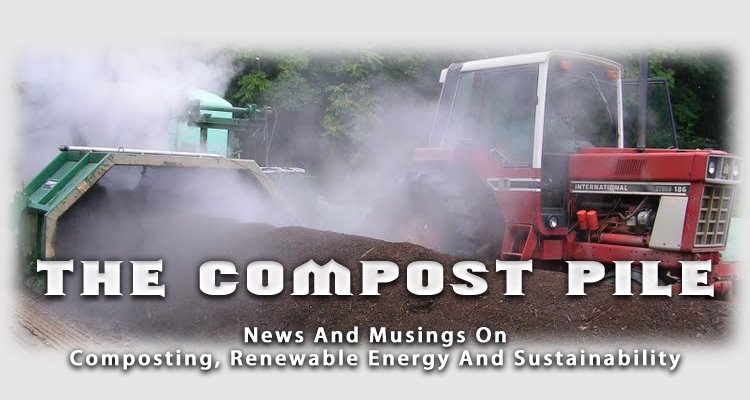 There's a lot of buzz about compostable products, as companies attempt to become green. These are products, from cups to cutlery to bags, that are designed to biodegrade in a composting environment. This industry is huge -- International Paper just sold its one billionth ecotainer, making it the most common compostable product (right).
There's a lot of buzz about compostable products, as companies attempt to become green. These are products, from cups to cutlery to bags, that are designed to biodegrade in a composting environment. This industry is huge -- International Paper just sold its one billionth ecotainer, making it the most common compostable product (right).It's essentially a paper cup, but is coated with a special plastic made out of corn that is designed to break down in a professionally managed co
 mposting environment. In this case, the ecotainer is covered with PLA (polylactic acid) manufactured by NatureWorks, under the brand name Ingeo (left).
mposting environment. In this case, the ecotainer is covered with PLA (polylactic acid) manufactured by NatureWorks, under the brand name Ingeo (left).In the U.S., the Biodegradable Products Institute (BPI) approves certifies products that meet ASTM (American Society for Testing and Materials) standards, and provides a label.
Although the ASTM standards require products to break down in a professional composting facility, there are some products on the market that will biodegrade in your backyard compost bin. When I interviewed Shanon Boase, founder of EarthCycle Packaging, she said, “Our product is also home compostable, along with the film made by Innovia, so it doesn’t rely on a municipal composting system. EarthCycle products can also be recycled in a paper stream. We advocate the compostability of our product because we support upcycling — the products are made from waste palm fiber, after harvesting the oil, and if composted they are upcycled again by contributing to healthy soil.”

EarthCycle products (above) can be found in the fresh produce sections of several large retailers, including Wal-Mart, Whole Foods, Wegmans, Trader Joes and Publix. For more information on the range of compostable products on the market, check out my article, "Compostable Products Go Mainstream," published in the July 2009 issue of BioCycle magazine.






No comments:
Post a Comment